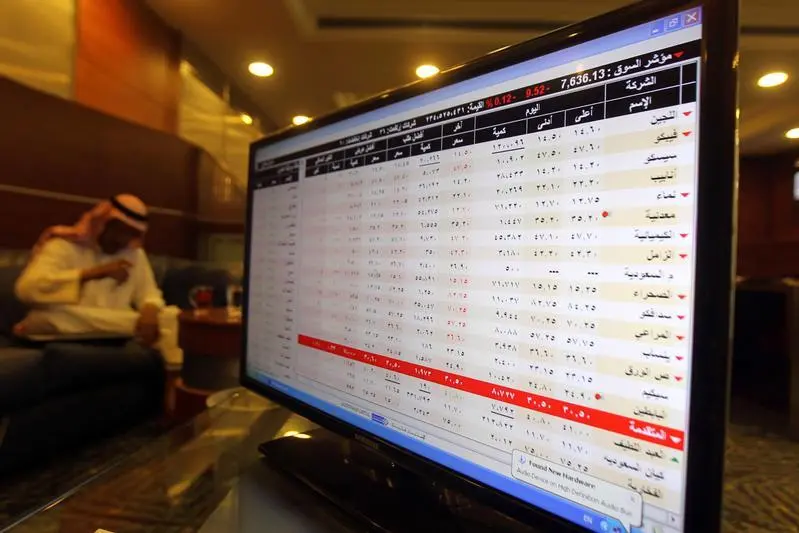PHOTO
Most major Gulf stock markets edged higher in early trade on Tuesday despite worries over higher U.S interest rates for a longer period, although the Saudi index was on course to fall for a fourth session.
U.S. Fed officials said monetary policy will need to stay restrictive for "some time" to bring inflation back down to the central bank's 2% target.
The six-member Gulf Cooperation Council's monetary policy is usually guided by the Fed's decision as most regional currencies are pegged to the U.S. dollar.
Saudi Arabia's benchmark index dropped 0.3%, weighed down by a 0.6% fall in oil giant Saudi Aramco and a 0.4% decrease in Alinma Bank.
Oil prices - which fuel the Gulf economy - slipped by around 1% in early Asian trade, after falling to a three-week low in the previous session, on a stronger dollar, rising U.S. bond yields and mixed supply signals.
In Abu Dhabi, the index added 0.1%.
Abu Dhabi's non-oil economic growth surged to 12.3% in the second quarter, data showed on Monday, supporting overall GDP growth in the period of 3.5% year-on-year, as the city-state accelerates efforts to diversify away from hydrocarbons.
Dubai's main share index rose 0.3%, helped by a 1.7% rise in Emirates NBD Bank.
The Qatari index added 0.3%, with the Gulf's biggest lender, Qatar National Bank, rising 0.8%.
Qatar reported a balance of payments surplus of 7.9 billion riyals ($2.17 billion) in the second quarter, the central bank said on Sunday.
(Reporting by Ateeq Shariff in Bengaluru; Editing by Nick Macfie)




















